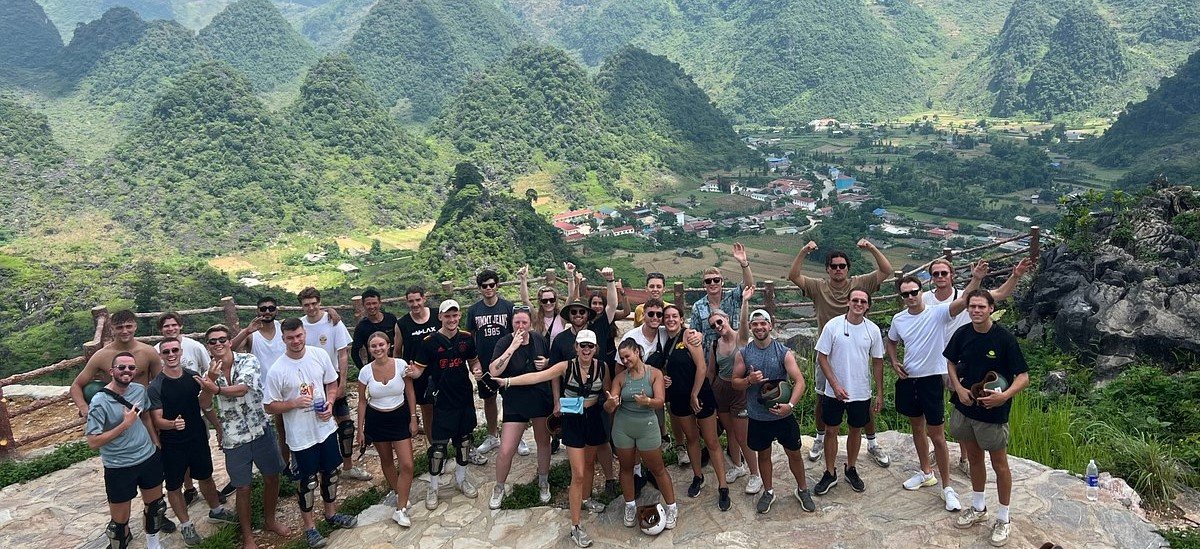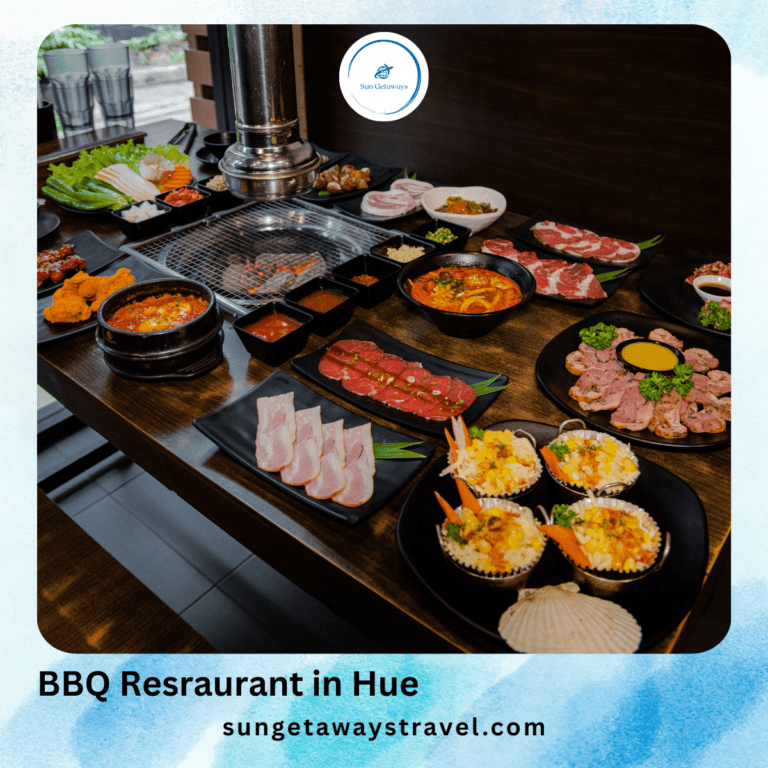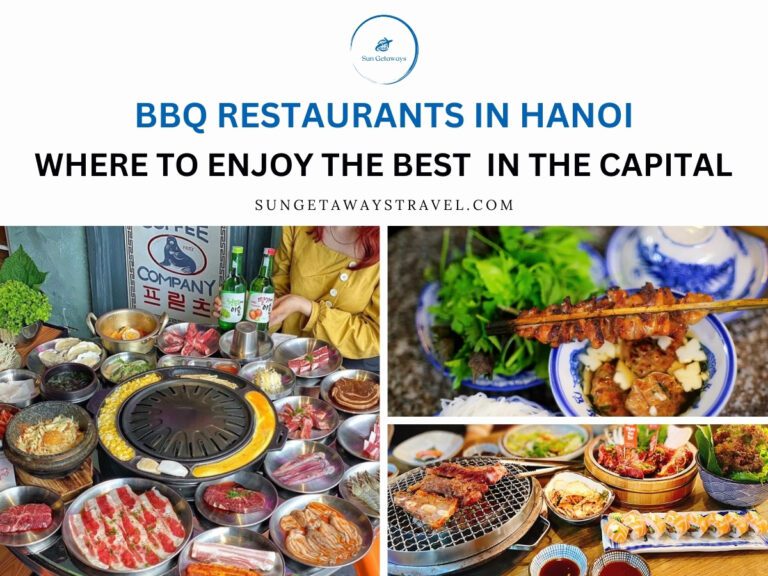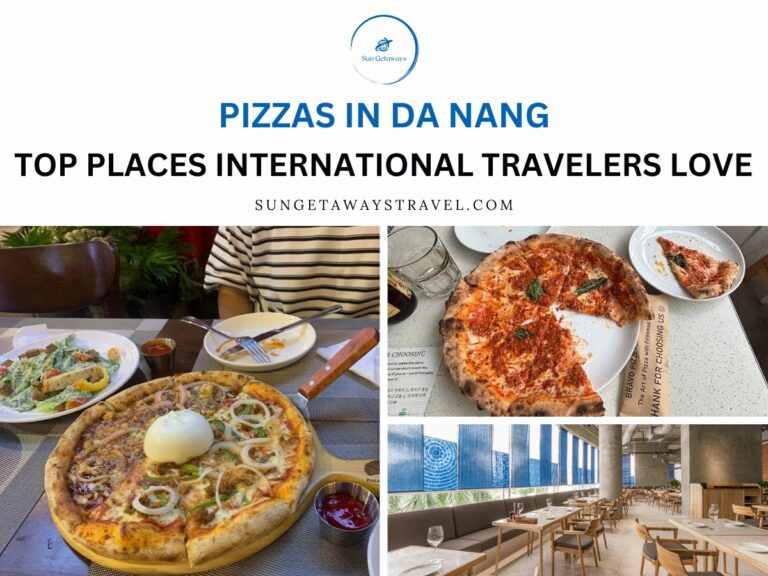Payments in Vietnam for Foreigners: 10 Things You Need to Know
Planning a trip to Vietnam? One of the first questions many travelers ask is: “How do I pay for things there?”
From cash-only street food stalls to QR payments in trendy cafés, navigating the payment landscape in Vietnam can feel like a cultural adventure of its own.
To help you avoid confusion and unexpected fees, this guide breaks down the 10 essential things every foreigner should know about payments in Vietnam—based on real traveler experiences and local insights from Sun Getaways Travel. Let’s make sure you’re prepared for everything from currency exchange to tipping etiquette, so you can focus on enjoying Vietnam to the fullest.
Key Takeaways
- Cash is Still King (Especially Locally): Always carry a reasonable amount of Vietnamese Dong (VND) for street food, local markets, small vendors, and tips. Don’t rely solely on cards, as doing so will exclude you from many authentic local experiences.
- Cards are for Major Bookings: Use your credit or debit card for significant expenses like hotels, upscale restaurants, and tour packages booked with us at Sun Getaways Travel. This minimizes the need to carry large amounts of cash and helps with expense tracking.
- Stay Connected for a Smoother Trip: A local SIM card or eSIM is essential. It’s your lifeline for maps, communication with your guides, accessing banking apps, and staying in touch with loved ones back home.
- A Hybrid Approach is Best: The smartest strategy is a blended one. Use cash for daily small expenses and cards for larger, planned purchases. For transportation and tours, rely on pre-booked services for the best experience.
1. Staying Connected: The Foundation for a Smooth Trip
Before we dive deep into financial transactions, let’s establish the bedrock of modern travel: internet connectivity. Today, having reliable data on your phone is non-negotiable. It’s your tool for checking your bank balance in real-time, communicating with your pre-booked driver, translating a menu, or simply navigating to the nearest ATM. A stable connection empowers you to make smart financial decisions on the go. Here are your best options for staying connected in Vietnam.


Getting a Local SIM Card in Vietnam
The most reliable, straightforward, and cost-effective way to stay online is by getting a local SIM card. Upon arrival at any major international airport (Hanoi’s Noi Bai – HAN, Da Nang – DAD, or Ho Chi Minh City’s Tan Son Nhat – SGN), you’ll find prominent kiosks from the “big three” providers. Our guide on Connect with Ease: The Top 3 SIM Cards for Travelers in Vietnam provides a great overview.
- Viettel: Often considered the top choice for tourists, Viettel is a military-owned enterprise with the most extensive network coverage in the country. If your itinerary, planned with us, includes remote areas like the Ha Giang Loop, mountainous regions around Sapa, or rural parts of the Mekong Delta, Viettel is your most reliable bet.
- Vinaphone and MobiFone: These are strong competitors with excellent coverage in cities and major tourist destinations. They sometimes offer more competitive data packages for urban travelers, so it’s worth comparing the deals at the airport kiosks. A deeper look can be found by Comparing Vietnam’s Mobile Networks: Viettel, Vinaphone & MobiFone.
The registration process is simple: you will need your passport, and the staff at the kiosk will handle the activation for you in minutes. For more specifics, understanding A Guide to Mobile Data in Vietnam: SIM Cards, Plans & Costs will help you make the right choice. The entire process is straightforward, and our Vietnam SIM Card for Tourists: The Ultimate Guide walks you through every step. Ultimately, Choosing the Right Data Plan for Your Vietnam Trip depends on your usage, but rest assured there’s a perfect fit.
eSIM for Vietnam: The Digital Convenience
For those with newer smartphone models (iPhone 11 or newer, recent Samsung Galaxy/Google Pixel models), an eSIM is a game-changer. An eSIM is a digital SIM that allows you to activate a cellular plan without having to use a physical nano-SIM. You can purchase and set it up online from various global providers before you even leave home.


This means you are connected the second your plane touches down, allowing you to message your family or confirm your airport pickup with us immediately. While sometimes slightly more expensive than a physical SIM, the sheer convenience is often worth the small premium. Learn more about how to use an eSIM Vietnam: Stay Connected Without the Hassle and enjoy a seamless arrival.
Wi-Fi Availability: Hotels, Cafes & Public Spots
Vietnam boasts excellent Wi-Fi infrastructure, a testament to its vibrant cafe culture and tourism focus. You’ll find free, reliable Wi-Fi in almost every hotel, cafe, and restaurant in major cities. This is great for conserving your mobile data. Our general guide on Staying Connected in Vietnam: A Guide to Internet & WiFi Access covers all bases.
While Hotel WiFi in Vietnam: What to Expect & How to Stay Connected is generally good, it’s wise to be mindful of security on public networks. For digital nomads needing a constant, secure connection for multiple devices, renting a Pocket WiFi Vietnam: Stay Connected On-the-Go is a fantastic option. It’s also useful for those wanting to Stay Connected in Vietnam: Finding Reliable WiFi Hotspots wherever they go.
International Roaming
Another option is to use your home provider’s international roaming plan. The primary advantage is convenience—you keep your own number and don’t have to do anything upon arrival. However, this is almost always the most expensive option. Data charges can be exorbitant, and even if you purchase a travel pass from your provider, it’s typically much pricier than a local SIM for a similar amount of data. We recommend this only for very short trips or as a temporary backup. For more details, see our guide on Vietnam Phone Roaming: Stay Connected While Exploring.
2. Smart Spending & Payments: Managing Your Money in Vietnam
With connectivity sorted, let’s get to the core of your spending strategy. The system for payments in Vietnam is a fascinating mix of the traditional and the ultra-modern. Here’s how to manage your money like a pro.
Vietnamese Dong (VND): Understanding the Local Currency
The official currency is the Vietnamese Dong (VND), and you’ll quickly become a “millionaire.” With an exchange rate of roughly 1 USD to 25,000 VND, you’ll be dealing with large numbers. Don’t be alarmed by a dinner bill of 500,000 VND—that’s only about $20!
- The Notes: Vietnam uses polymer banknotes, which are durable and water-resistant. Key denominations you’ll use are 10,000, 20,000, 50,000, 100,000, 200,000, and 500,000.
- Color Confusion: A classic tourist mistake is mixing up the blue-hued 20,000 VND note with the similarly colored 500,000 VND note. The value difference is huge, so always take a second to double-check the number of zeros before paying.
- Contextualizing Costs: To help you adjust, think of 100,000 VND as approximately $4 USD. A delicious Banh Mi sandwich might be 25,000 VND ($1), a cup of coffee 40,000 VND (~$1.60), and a short taxi ride 70,000 VND (~$2.80).
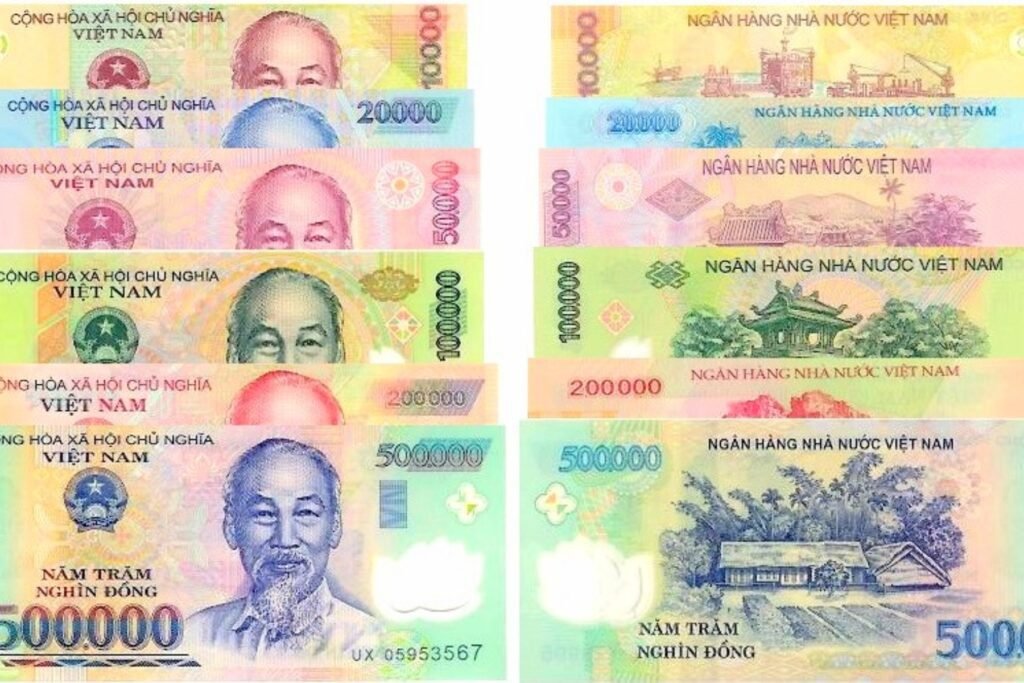

Having a good grasp of the currency is vital, and our Vietnamese Dong Guide: How to Use and Exchange VND is a great starting point. The guide on Money in Vietnam: Values, Exchange Rates, Significance, and Advice provides even deeper context. This knowledge is also crucial when visiting specific destinations, as detailed in our Phu Quoc Currency: What You Need to Know for Your Trip guide.
Exchanging Money: Best Places & Rates
You have several options for converting your home currency into Vietnamese Dong.
- Gold Shops (Tiệm Vàng): This might sound unusual, but for decades, gold shops have been unofficial (yet legal) money changers. They are famous for offering the best exchange rates, often better than banks. Look for them in Hanoi’s Ha Trung Street or Ho Chi Minh City’s Nguyen An Ninh Street near Ben Thanh Market. Choose shops that are busy and have a clear rate board.
- Banks: A very safe and official option. Major banks like Vietcombank, ACB, and Sacombank will exchange currency. The rates are slightly less competitive than gold shops, and the process is more formal, requiring your passport.
- Airport Counters: The most convenient option upon arrival, but they offer the least favorable rates. We recommend exchanging only a small amount here ($50-$100) to cover your initial transportation and first meal.
- What to Avoid: Never exchange money with individuals on the street, and be wary of hotel exchange services, as their rates are typically very poor. For a complete breakdown, follow our Vietnam Currency Exchange Tips: Cash, Credit Cards & ATMs Explained.
Credit & Debit Cards: Acceptance and Fees
Your international credit and debit cards (Visa and Mastercard are most common) are your best friends for larger expenses.
- Where They’re Accepted: All mid-to-high-end hotels, airlines, established tour operators like Sun Getaways Travel, upscale restaurants, and major retail stores will accept cards.
- The Surcharge: Be aware that many smaller businesses will add a surcharge of 2-3% to your bill if you pay by card. This is to cover the fee they are charged by the bank. Always ask if there’s a fee before you pay.
- Dynamic Currency Conversion (DCC): You may be asked, “Would you like to pay in your home currency?” This is a system called DCC. Always say no and choose to be charged in VND. Your home bank will give you a much better exchange rate.
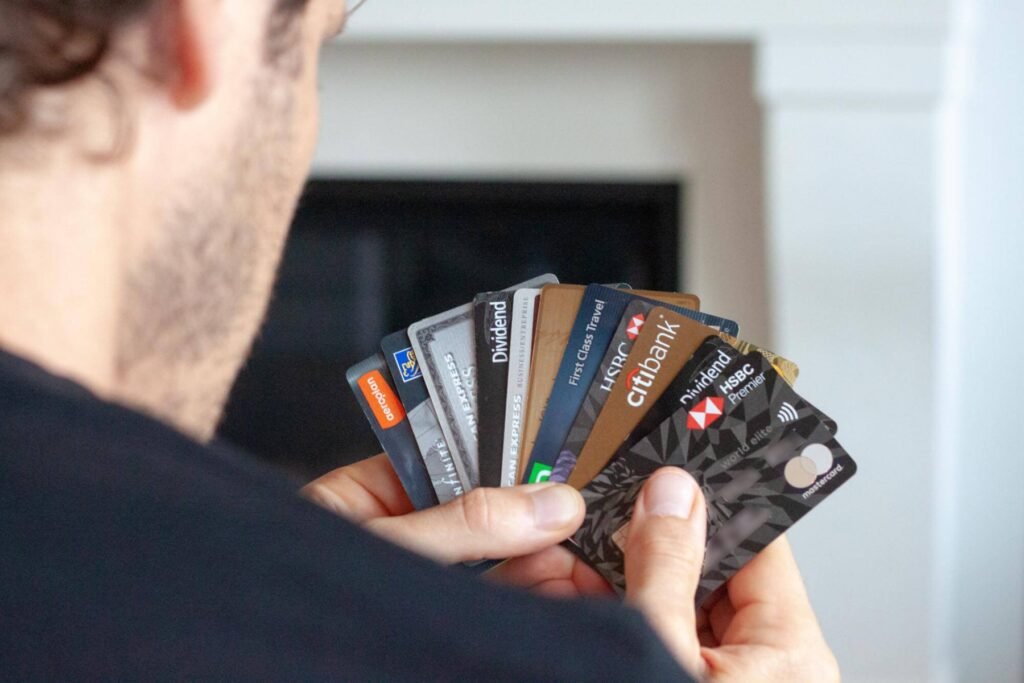

Using your card is a great way to handle larger payments in Vietnam, and our Vietnam Credit Card Tips: Where and When to Use Your Card provides essential advice. Similarly, if you prefer using a debit card, our Vietnam Debit Card Guide: Using Your Card Safely and Efficiently has you covered.
Mobile Wallets & QR Payments
The QR code payment revolution has swept through urban Vietnam. You’ll see QR codes for local mobile wallets like Momo, ZaloPay, and VNPay displayed prominently at checkout counters everywhere. Our guide to Digital Payments in Vietnam: A Guide for Tourists explains this trend.
As a foreigner, Using Mobile Wallets in Vietnam: Momo, ZaloPay & VNPay can be challenging as they typically require a local bank account. However, it’s good to be aware of them to understand the local commerce scene. The most relevant system for tourists is VNPay’s network. Some international banking apps are beginning to integrate with global QR networks, which might allow you to scan a VNPay QR code. This technology is evolving rapidly, and Paying with QR Codes in Vietnam: A Quick & Easy Guide can keep you updated. For now, mobile payments are more of a local convenience than a primary tool for tourists.
When to Use Cash vs. Card
This is the golden rule for payments in Vietnam and the core of a smart spending strategy.
- Use Cash For: All the best parts of local life! Street food, local markets, cyclos, small family-run restaurants, independent coffee shops, and any purchase under 200,000 VND.
- Use Card For: Large, predictable expenses. This includes your hotel bills, flight tickets, pre-booked tours with us, upscale restaurant meals, and purchases in modern shopping malls. This helps you manage your cash flow and provides a secure paper trail.


Expert Quote: “The smartest traveler in Vietnam is the one who embraces both worlds. Relying only on your credit card will leave you unable to enjoy the best local experiences. Relying only on cash means carrying bulky wads of notes for large payments. The key is a hybrid strategy: use your card for big, planned expenses and cash for spontaneous, everyday discoveries. This balance ensures both security and authenticity.”
– Mr. Hoang, Digital Travel Specialist at Sun Getaways Travel
ATMs in Vietnam: Locations, Fees & Limits
ATMs are ubiquitous in cities and towns. However, be prepared for withdrawal fees. Most local banks charge a fixed fee of 40,000-60,000 VND ($1.60 – $2.40) per transaction, in addition to any fees your home bank may charge. Withdrawal limits per transaction are also relatively low, often between 2-5 million VND ($80 – $200). To minimize fees, make fewer, larger withdrawals. Our guide to ATMs in Vietnam: Finding Cash & Avoiding Fees lists banks that tend to have higher withdrawal limits. Always use ATMs in well-lit areas and cover the keypad when entering your PIN.
Tipping and VAT Refunds
- Tipping: Tipping is not customary or expected in most local establishments. However, it is greatly appreciated for excellent service, especially in the tourism sector. A small tip for a great tour guide, driver, or hotel staff can go a long way. Our Vietnam Tipping Guide: How Much to Tip & When to Tip provides detailed suggestions for different situations.
- VAT Refund: If you make significant purchases of goods to take home, you may be eligible for a Value Added Tax (VAT) refund at the airport upon departure. The process requires specific paperwork from the store at the time of purchase. Learn more at Vietnam Tourist VAT Refund: Everything You Need to Know.
Sending or Receiving Money
In case of an emergency or if you need to transfer funds, there are several options available. Traditional services like Western Union are present, but newer digital platforms often provide better rates and faster service. For a detailed comparison of options, our guide on Money Transfer to Vietnam: Secure & Affordable Options is an invaluable resource.
3. Essential Tech & Safety for Modern Travel in Vietnam
With increased connectivity comes the need for vigilance. Protecting your devices, data, and money is paramount for a worry-free trip.


Essential Electronics and Power
- Power & Sockets: Vietnam uses 220V electricity. The most common sockets are Type A (two flat pins) and Type C (two round pins), so a universal adapter is highly recommended. Our detailed Electric Outlet in Vietnam: A Guide for Travelers has visuals and more information. To avoid confusion, check out our guide on Vietnam Power Adapters: What You Need to Know.
- Must-Have Gear: A portable power bank is a lifesaver for long days of sightseeing. Our guide to Staying Charged in Vietnam: Power Banks, Adapters & Charging Tips ensures you never run out of battery. For a complete checklist, see our list of Essential Vietnam Travel Electronics: A Packing Guide.
- For Photographers: If you’re passionate about photography, our guide on Camera Gear for Vietnam: What to Pack for Stunning Photos & Videos will help you prepare to capture the country’s beauty.
Digital Safety & Security Tips
- Protecting Your Data: Avoid accessing your bank account or entering passwords on unsecured public Wi-Fi networks. A VPN (Virtual Private Network) is an excellent tool that encrypts your connection, creating a secure “tunnel” for your data. For more on this, our guide on Staying Safe Online in Vietnam: VPN, Cybersecurity & Data Protection is a must-read. Good Data Protection in Vietnam: Keeping Your Information Secure While Traveling practices are crucial.
- Beware of Travel Scams: While Vietnam is very safe, petty scams can occur. Be aware of taxis with fast-running meters (best avoided by using reputable brands or pre-booked cars), and always agree on prices for cyclos or services beforehand. Our guide on Avoiding Online Scams in Vietnam: Tips for Staying Safe can also help you spot red flags.
- Troubleshooting: Sometimes, your connection might drop. Simple fixes like restarting your phone often work. Our guide to Troubleshooting Internet Problems in Vietnam: Tips & Solutions can help you resolve common issues quickly.
Drones & Remote Work
- Drone Laws: If you’re bringing a drone, be aware that regulations are strict and require permits, which are difficult for tourists to obtain. Flying a drone without a permit can lead to hefty fines. It’s crucial to review our guide on Understanding Vietnam Drone Laws: A Comprehensive Guide before you pack your gear. Even for legal flights, our tips on Vietnam Drone Photography: Exploring the Scenic Landscapes can be helpful.
- Digital Nomads: For those planning a longer stay, Vietnam is a fantastic destination. For insights on internet speeds, visas, and places to work, see our guide on Working Remotely in Vietnam: Co-working Spaces, Internet Speeds & Tips.
4. Frequently Asked Questions (FAQ)
Here are quick answers to the most common questions about payments in Vietnam:
1. Can I use my foreign credit card everywhere in Vietnam?
Not everywhere. Credit cards are widely accepted at hotels, upscale restaurants, and major retailers in big cities. But for everyday transactions—street food, local shops, and transportation—cash is still king.
2. Is Wi-Fi easily available across Vietnam?
Yes. Most hotels, cafés, and even buses offer free Wi-Fi, especially in major cities and tourist spots. Still, we strongly recommend getting a local SIM or eSIM for constant access, especially when using payment apps or ride-hailing services.
3. What’s the safest and most convenient way to travel within cities?
The most reliable option is booking private transfers or car services through trusted operators like Sun Getaways Travel, especially for airport pickups or day trips.
4. Do I really need cash in Vietnam?
Absolutely. Cash is essential in Vietnam’s daily life. From street vendors and market stalls to rural cafés and small businesses, cash enables you to access authentic local experiences without hassle.
Mastering the art of payments in Vietnam is about embracing flexibility. By combining the security of your cards with a ready supply of local cash, and by staying connected with a local SIM, you’ll be perfectly equipped for any situation. This smart, hybrid approach will not only make your journey smoother but will also empower you to dive deeper into the authentic, everyday life of this incredible country.
About the Author: Emma Nguyen
Emma Nguyen is a Digital Travel Specialist at Sun Getaways Travel. With a strong background in finance and an unbridled passion for technology, Emma dedicates herself to helping international tourists navigate the fascinating, sometimes complex, world of modern travel in Vietnam. Having traveled extensively from the misty northern highlands to the vibrant southern delta, she’s always on the front lines, personally testing the newest apps, payment methods, and connectivity solutions to provide the most practical and up-to-date advice for our readers.
Why Trust Us?
At Sun Getaways Travel, we are more than just a travel agency; we are a team of passionate local experts deeply rooted right here in Vietnam. Our commitment goes beyond simply booking trips – we live and breathe Vietnam, personally vetting every hotel, trying every activity, and building strong, long-term relationships with the finest local guides and drivers.
When you choose to book with us, you gain far more than just a trip. You receive insider access, 24/7 on-the-ground support, and the invaluable peace of mind that comes from knowing your entire journey is meticulously crafted by people who proudly call Vietnam home. We handle all the intricate logistics—from your private airport transfer and hotel check-in to your curated dining experiences and daily excursions—so you are free to focus on what truly matters: making unforgettable memories that will last a lifetime.
Ask a question
Leave a Comment (0)
No questions yet. Be the first to ask a question!


